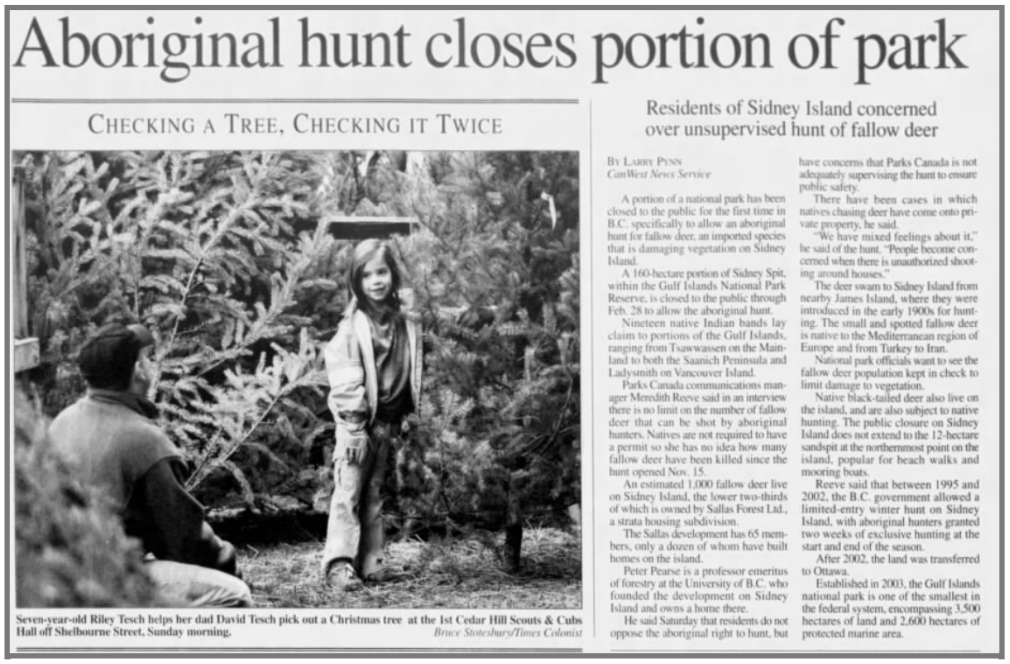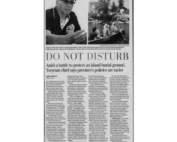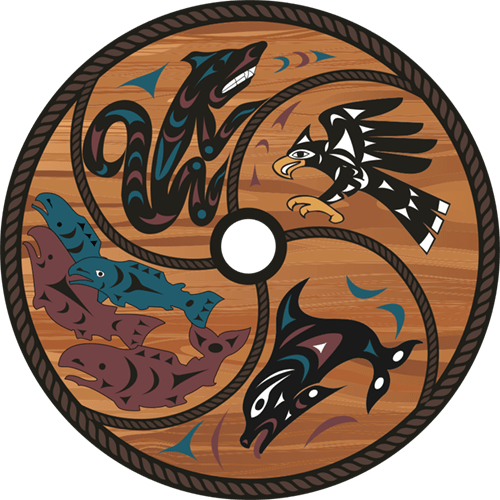
Aboriginal hunt closes portion of park
Residents of Sidney Island concerned over unsupervised hunt of fallow deer
BY LARRY PYNN
CanWest News Service
A portion of a national park has been closed to the public for the first time in B.C. specifically to allow an aboriginal hunt for fallow deer, an imported species that is damaging vegetation on Sidney Island.
A 160-hectare portion of Sidney Spit. within the Gulf Islands National Park Reserve, is closed to the public through Feb. 28 to allow the aboriginal hunt.
Nineteen native Indian bands lay claim to portions of the Gulf Islands, ranging from Tsawwassen on the Mainland to both the Saanich Peninsula and Ladysmith on Vancouver Island.
Parks Canada communications manager Meredith Reeve said in an interview there is no limit on the number of fallow deer that can be shot by aboriginal hunters. Natives are not required to have a permit so she has no idea how many fallow deer have been killed since the hunt opened Nov. 15.
An estimated 1,000 fallow deer live on Sidney Island, the lower two-thirds of which is owned by Sallas Forest Ltd., a strata housing subdivision.
The Sallas development has 65 members, only a dozen of whom have built homes on the island.
Peter Pearse is a professor emeritus of forestry at the University of B.C. who founded the development on Sidney Island and owns a home there.
He said Saturday that residents do not oppose the aboriginal right to hunt, but have concerns that Parks Canada is not adequately supervising the hunt to ensure public safety.
There have been cases in which natives chasing deer have come onto private property, he said.
“We have mixed feelings about it,” he said of the hunt. “People become concerned when there is unauthorized shooting around houses.”
The deer swam to Sidney Island from nearby James Island, where they were introduced in the early 1900s for hunting. The small and spotted fallow deer is native to the Mediterranean region of Europe and from Turkey to Iran.
National Park officials want to see the fallow deer population kept in check to limit damage to vegetation.
Native black-tailed deer also live on the island, and are also subject to native hunting. The public closure on Sidney Island does not extend to the 12-hectare sandspit at the northernmost point on the island, popular for beach walks and mooring boats.
Reeve said that between 1995 and 2002, the B.C. government allowed a limited-entry winter hunt on Sidney Island, with aboriginal hunters granted two weeks of exclusive hunting at the start and end of the season.
After 2002, the land was transferred to Ottawa.
Established in 2003, the Gulf Islands national park is one of the smallest in the federal system, encompassing 3,500 hectares of land and 2,600 hectares of protected marina area.






